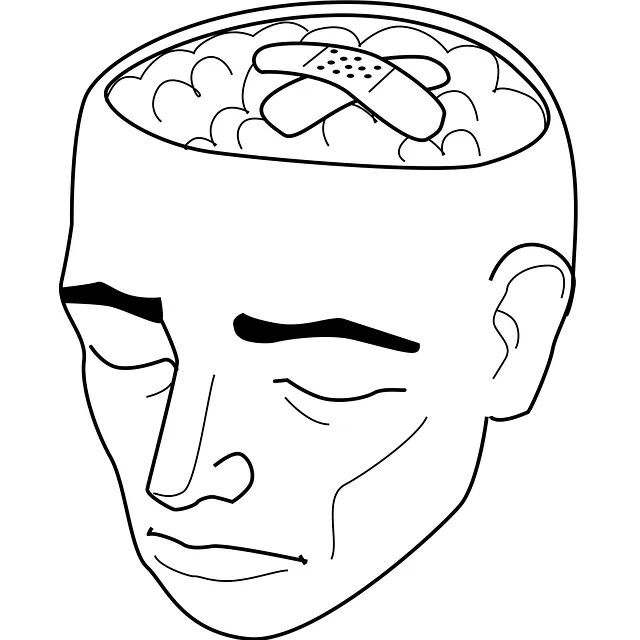Kaiser Permanente mental health locations in Longmont utilize the RFM (Reach, Frequency, Monetary value) framework to deliver targeted, effective care by analyzing patient engagement, satisfaction, and investment. Their holistic approach focuses on building resilience through tailored programs that empower individuals with self-care practices, emotional regulation skills, and coping mechanisms for stress and trauma. The RFM model, including exercises in resilience, flexibility, and mindfulness, enhances self-care routines, improves emotional health outcomes, and navigates life's challenges more easily. However, implementing these strategies requires cultural sensitivity, specialized training, and continuous program evaluation to overcome challenges and cater to diverse communities.
Resilience is a cornerstone of mental well-being, especially in today’s fast-paced world. The RFM (Resilience, Flexibility, and Mastery) model offers a structured approach to enhancing resilience, with notable success stories from organizations like Kaiser Permanente. This article explores the implementation of RFM exercises at Longmont Mental Health locations, drawing insights from Kaiser Permanente’s proven strategies. We’ll delve into benefits, potential challenges, and effective integration techniques, providing valuable guidance for continuous improvement in mental health care.
- Understanding RFM and its Significance in Mental Health Care
- Kaiser Permanente's Approach to Resilience Building
- Implementing RFM Exercises at Longmont Mental Health Locations
- Benefits and Potential Challenges of RFM Programs
- Strategies for Effective RFM Integration and Continuous Improvement
Understanding RFM and its Significance in Mental Health Care

At Kaiser Permanente mental health locations Longmont, understanding RFM—Reach, Frequency, and Monetary value—is paramount in delivering effective care. This simple yet powerful framework helps professionals gauge patient engagement and satisfaction, crucial for fostering resilience and overall well-being. By assessing how often patients reach out for support, the frequency of their interactions, and the monetary investment they make (either directly or indirectly) in their mental health journey, caregivers can tailor interventions more precisely.
This approach is particularly vital when integrating communication strategies and emotional intelligence to build resilience. Recognizing patterns in RFM data can highlight areas where patients might benefit from additional emotional intelligence training or enhanced communication skills groups. Moreover, by boosting patient confidence through these interventions, mental health professionals at Kaiser Permanente Longmont not only improve adherence but also create a more supportive ecosystem that strengthens individuals’ capacity to navigate life’s challenges resiliently.
Kaiser Permanente's Approach to Resilience Building

Kaiser Permanente, known for its comprehensive healthcare services, has made significant strides in addressing mental health concerns within its Longmont and other mental health locations. Their approach to resilience building is an integral part of their overall wellness strategy. The organization recognizes that fostering resilience is crucial for individuals to navigate life’s challenges and maintain good mental health.
Through a combination of Mental Health Education Programs Design, Kaiser Permanente encourages patients to develop self-care practices and emotional regulation skills. These initiatives are tailored to meet the unique needs of diverse communities, ensuring accessibility and effectiveness. By integrating these programs into their services, Kaiser Permanente promotes a holistic view of healthcare, where resilience is not just an outcome but an active process that empowers individuals to lead fulfilling lives.
Implementing RFM Exercises at Longmont Mental Health Locations

Implementing RFM (Resilience, Flexibility, and Mindfulness) exercises at Kaiser Permanente mental health locations in Longmont has become an integral part of patient care strategies. These practices, designed to foster resilience, are tailored to meet the unique needs of individuals seeking support for their mental well-being. The program focuses on teaching effective communication strategies and compassion cultivation practices that empower patients to navigate life’s challenges with greater ease.
By incorporating RFM exercises into the routine of Longmont mental health locations, Kaiser Permanente aims to enhance self-care routine development for better mental health outcomes. Through mindfulness techniques and flexibility training, patients gain tools to manage stress, improve emotional regulation, and cultivate a sense of inner calm. This holistic approach not only benefits individuals in their immediate surroundings but also equips them with skills that can be applied throughout their daily lives.
Benefits and Potential Challenges of RFM Programs

Implementing RFM (Resilience, Flexibility, and Mastery) programs in mental health settings, like those offered by Kaiser Permanente mental health locations Longmont, brings a multitude of benefits. These exercises are designed to enhance self-awareness, foster resilience against stress and trauma, and empower individuals with coping mechanisms tailored to their unique experiences. By incorporating Self-Awareness Exercises and Trauma Support Services into the program structure, participants can develop a deeper understanding of their emotional responses, break free from negative thought patterns, and cultivate a sense of control over their mental well-being. The programs also offer Mental Health Education Programs Design that equip individuals with practical tools to navigate life’s challenges more effectively.
However, potential challenges exist when introducing RFM initiatives. Engaging individuals in these exercises requires sensitive handling, especially when dealing with traumatic experiences. Some participants might struggle with vulnerability and resistance during the initial stages. Ensuring a safe, non-judgmental space is crucial for successful implementation. Additionally, tailoring exercises to diverse populations and individual needs within Kaiser Permanente’s Longmont mental health locations demands cultural sensitivity and specialized training. Overcoming these challenges requires dedicated efforts from mental health professionals, continuous evaluation of program effectiveness, and adaptability in addressing unique community needs.
Strategies for Effective RFM Integration and Continuous Improvement

Implementing RFM (Resilience, Flexibility, and Mastery) strategies at Kaiser Permanente mental health locations in Longmont requires a tailored approach that aligns with both the unique challenges faced by clients and the evolving nature of the field. To ensure effectiveness, these exercises should be integrated seamlessly into existing therapy models, rather than standalone interventions. By fostering an environment where resilience is actively cultivated through practical, real-world applications, professionals can empower individuals to navigate life’s storms with greater ease.
Continuous improvement in RFM implementation involves regular reflection and adaptation based on client feedback and clinical outcomes. Mental health professionals at Longmont locations should engage in collaborative supervision and peer support to share best practices and address challenges collectively. Additionally, incorporating Empathy Building Strategies and Emotional Healing Processes can enhance the depth of connections formed between clients and therapists, thereby strengthening the resilience-building alliance. Regular risk assessments are also crucial, especially considering the evolving landscape of mental health care, to ensure interventions remain effective and safe for all individuals served.
The implementation of RFM (Resilience, Flexibility, and Mastery) exercises at Kaiser Permanente’s mental health locations in Longmont has demonstrated significant potential in enhancing patient resilience. By fostering a sense of control and equipping individuals with effective coping strategies, RFM programs can lead to improved mental well-being. As highlighted in this article, Kaiser Permanente’s approach emphasizes the importance of tailoring these exercises to the unique needs of each individual, ensuring accessibility and inclusivity. Despite potential challenges, such as staff training and resource allocation, strategic integration and continuous improvement can optimize the benefits of RFM initiatives. This comprehensive approach promises to revolutionize mental health care, offering Longmont residents and beyond a robust tool for building resilience and navigating life’s challenges.






